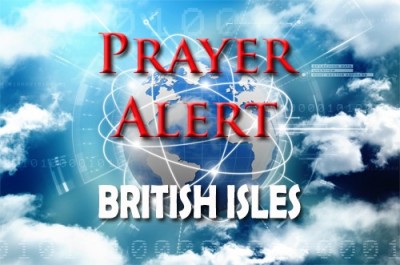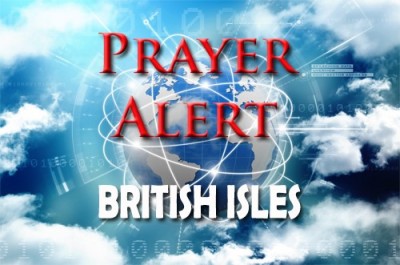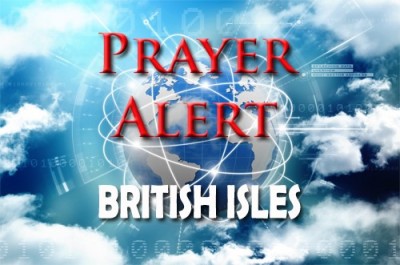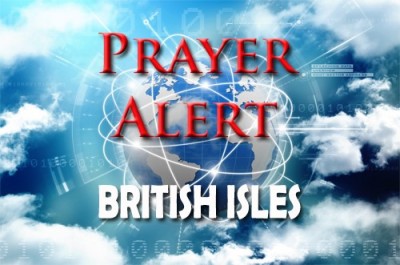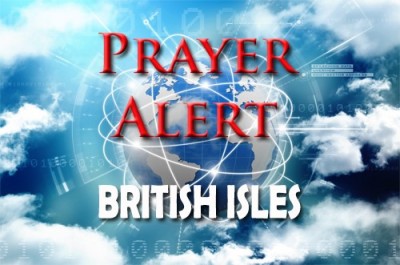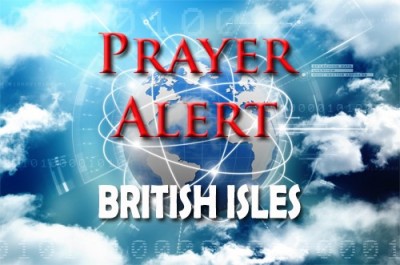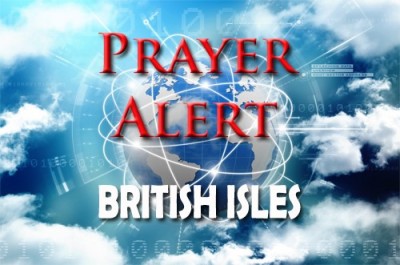Youth groups grew into a church
23 Sep 2021A missionary planted a church in Nicholas Lebey’s village in Ghana. Now Nicholas has done the same in south-east London and Bradford as a pioneer evangelist. In 2013 he came to Woolwich, and planted a church with young people who had no former connection with church. He launched a Friday night youth club, a Tuesday night gathering, a Youth Alpha course and from this, a youth congregation which met on a Sunday evening. He also worked on a local estate, running football and lunch clubs focussed on getting young people off the streets and into a place where they could belong, connect with friends, and build relationships, Nicholas was able to mentor them, with Christian teaching. ‘As relationships deepened, we began to see a community emerge. It came from the young people themselves. I believe we don’t do things for people, we do it with them’, explained Nicholas.
Bishop to the military prays for peace
23 Sep 2021Rt Rev Hugh Nelson is the new Bishop to the Armed Forces: he was formally licensed by Justin Welby on 20 September. This role will be in addition to his work as Bishop of St Germans in the Diocese of Truro. Speaking to Premier Christian Radio, Bishop Hugh said, ‘One of the commitments that I make as Bishop to the Forces is that I will pray for two things, every single day while I'm in this post. One is that the day will come and come as soon as possible when there's no need for any armed forces, when peace breaks out and the kingdom of God fully arrives. And in the meantime, I will continue to pray every single day for our men and women who are out there on the frontline trying to keep peace and justice in the name of this country.’
Gas crisis: CO2 shortage
23 Sep 2021Rising gas prices caused fertiliser factories to close on 20 September, cutting 60% of the supply of carbon dioxide (CO2) to the food and drinks industry. There were warnings of supermarket shortages, because CO2 extends the shelf life of packaged fresh foods and keeps transported food fresh as dry ice. There were also concerns that the UK may have to close its six advanced gas-cooled nuclear reactors which use CO2 . Big meat suppliers were prioritising how they use CO2 as they had just three days' supply, while supermarkets had ‘limited stock’ of frozen items. On 22 September the Government promised to give tens of millions of pounds to restart production of CO2 at a fertiliser factory for three weeks ‘whilst the market adapts to global prices’. There will be a cap to the overall cost. The Food and Drink Federation said shortages may be felt through to the end of the year.
Gas crisis: energy firms close down
23 Sep 2021Avro Energy and Green Supplier collapsed on 22 September, and the sector's regulator warned ‘well above’ hundreds of thousands of customers will have to be moved to new suppliers whose tariff may be more expensive. Avro Energy has 580,000 customers, Green Supplier 250,000. Customers will still receive energy while a new supplier is appointed. They are the latest providers to go bust following a sharp rise in wholesale gas prices. Ofgem warned the price rise was ‘something not seen before’ and more firms would fold. A six-fold rise in wholesale gas prices since last year meant several domestic energy suppliers had hit financial trouble. The Joseph Rowntree Foundation charity warned that millions of low-income households will face a squeeze on their finances from October, when energy companies will be allowed to lift the maximum amount they charge for gas and electricity by as much as 12%. Also from next month, Universal Credit claimants will lose £20 a week.
The Archbishop of Canterbury has called on the government to ‘put right’ the fact that a group of war widows who remarried after the deaths of their husbands, are not allowed to claim their pensions. He said, ‘One of the Bible's strongest, clearest, and most often repeated commands is to care for and honour the widow. The plight of the war widows who are not able to receive their military pensions is a very great wrong. To find love and happiness again after such loss and heartbreak only to be denied their rightful pension, and for many their means of living, leaves them in a cruel and unjustifiable situation and facing unbearable decisions. It must be put right.’ In 2015, changes were introduced and all who qualified would receive the pension for life. But the changes were not applied retrospectively, leaving around 200 women unable to claim the money.
Discrimination in schools
23 Sep 2021Data uncovered by an alliance of over fifty charities shows that black Caribbean girls were permanently excluded from school at twice the rate of white British girls during the academic year 2019-20. The rate tripled for mixed white and Caribbean girls, and was four times higher for girls from Gypsy, Roma and Traveller communities. While boys continue to face higher rates of exclusion overall, the report notes that the number of girls excluded has risen by 66% over the last five years, compared with a 32% increase among boys during the same time period. The report notes how females are excluded from education after experiencing unaddressed sexual harassment and abuse, poor mental health, and racism. Negative stereotypes attached to black girls and those from minority ethnic backgrounds play a critical role in their exclusion.
Two data breaches imperil Afghans
23 Sep 2021Two defence ministry blunders in one week have put Afghan lives at risk. The UK said not everyone eligible for relocation could be evacuated before forces left Afghanistan, but the Ministry of Defence (MoD) would help those left behind to leave. The first data breach was an email containing addresses of 250 Afghan interpreters mistakenly copied by the Afghan Relocations and Assistance Policy team (ARAP) pledging assistance with their relocation to the UK. Some of the addresses showed people’s names and associated profile pictures. The mistake could cost lives. Following that error, officials sent another message 30 minutes later advising the recipients to change their email addresses. The second blunder saw MoD officials mistakenly copy 55 people into an email, making their details visible to all recipients. The defence secretary instigated an investigation into data handling, and one official has been suspended pending an outcome.
Fraudsters steal £753.9 million in six months
23 Sep 2021Fraudsters stole over £4 million a day from people in the first half of the year, a rise of 31% from the same period in 2020, as criminals increased authorised push-payment (APP) fraud. Through scam calls, texts and emails, as well as fake websites, APP fraud sees criminals con victims into handing over personal data which is then used to trick them into authorising payments to an account belonging to the thieves. The report detected criminals tried taking a further £736 million but improved banking security systems prevented those funds from being moved out of victims’ accounts into the fraudster’s account. UK Finance warned, ‘Fraud is now a national security threat and banking and finance industries are calling for government-coordinated action across all sectors.’

